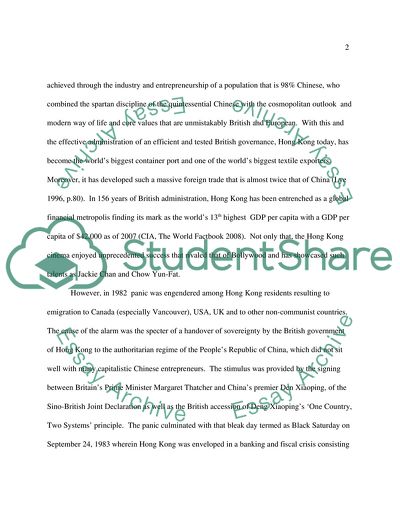Cite this document
(The Hong Kong Basic Law in Comparison With the Constitutions of Other Essay, n.d.)
The Hong Kong Basic Law in Comparison With the Constitutions of Other Essay. https://studentshare.org/law/1716914-compare-the-hong-kong-basic-law-with-the-constitutions-of-other-countries-eg-china-usa-uk-australia-canada-eu-countries-to-what-extent-do-you-agree-t
The Hong Kong Basic Law in Comparison With the Constitutions of Other Essay. https://studentshare.org/law/1716914-compare-the-hong-kong-basic-law-with-the-constitutions-of-other-countries-eg-china-usa-uk-australia-canada-eu-countries-to-what-extent-do-you-agree-t
(The Hong Kong Basic Law in Comparison With the Constitutions of Other Essay)
The Hong Kong Basic Law in Comparison With the Constitutions of Other Essay. https://studentshare.org/law/1716914-compare-the-hong-kong-basic-law-with-the-constitutions-of-other-countries-eg-china-usa-uk-australia-canada-eu-countries-to-what-extent-do-you-agree-t.
The Hong Kong Basic Law in Comparison With the Constitutions of Other Essay. https://studentshare.org/law/1716914-compare-the-hong-kong-basic-law-with-the-constitutions-of-other-countries-eg-china-usa-uk-australia-canada-eu-countries-to-what-extent-do-you-agree-t.
“The Hong Kong Basic Law in Comparison With the Constitutions of Other Essay”. https://studentshare.org/law/1716914-compare-the-hong-kong-basic-law-with-the-constitutions-of-other-countries-eg-china-usa-uk-australia-canada-eu-countries-to-what-extent-do-you-agree-t.


